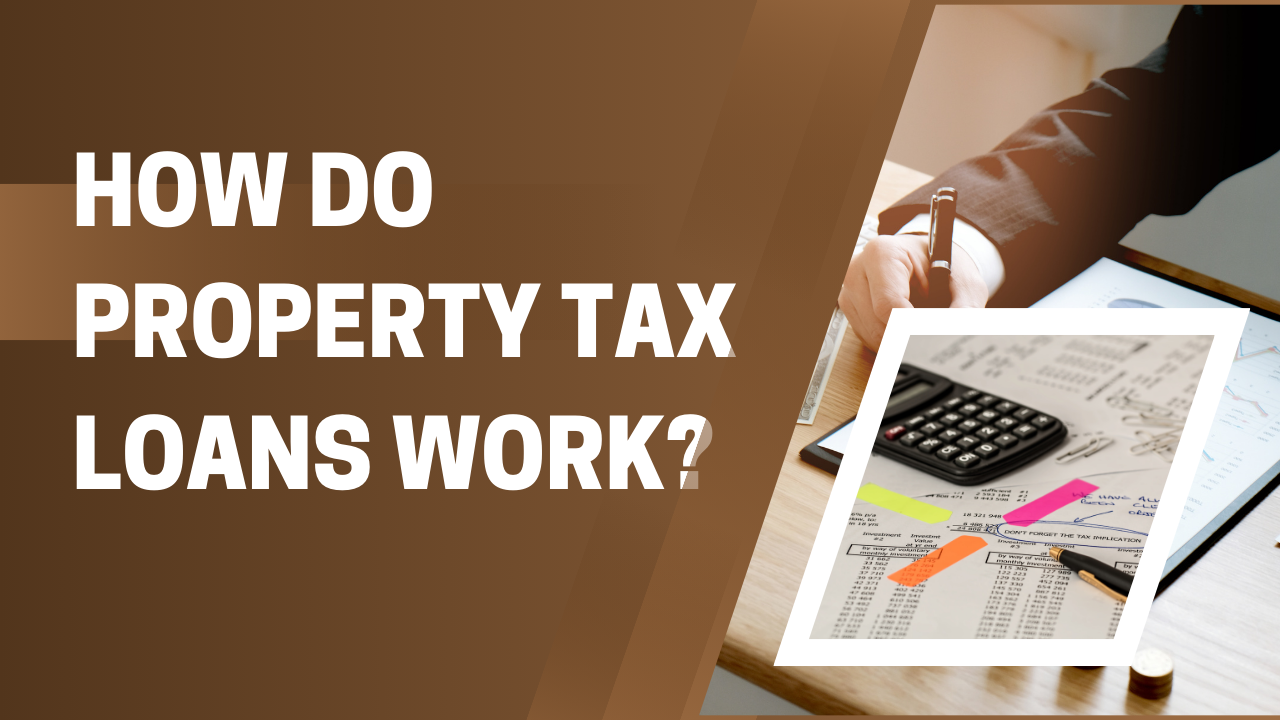Introduction
How Do Property Tax Loans Work?: Property tax loans have emerged as a viable solution for homeowners who are having financial difficulties paying their property taxes. These loans can help avoid penalties and legal ramifications associated with delinquent property taxes. Understanding how property tax credits work is crucial for homeowners considering this option to manage their tax liabilities.
What are property tax loans?
Property tax loans are specialized loans designed to help homeowners pay property taxes. These loans are typically made by private lenders who foot the tax bill on behalf of the homeowner. In exchange, the owner agrees to repay the loan, usually with interest, within a specified period.
The importance of real estate tax loans
Property tax loans are necessary for several reasons:
- Avoid Penalties: Late property taxes can result in hefty penalties and interest fees.
- Prevent foreclosure: Unpaid property taxes can lead to foreclosure, where the government seizes the property and sells it.
- Maintain Credit Score: Falling behind on property taxes can negatively impact a homeowner’s credit score.
Types of real estate tax loans
Residential property tax loans
These loans are designed for homeowners who have difficulty paying their property taxes. They usually have lower interest rates and more flexible repayment terms compared to commercial property tax loans.
Commercial real estate tax loans
Business property tax loans are intended for business owners who need to manage their property tax liabilities. These loans may have higher interest rates due to the higher risks associated with commercial real estate.
Eligibility Criteria for Real Estate Tax Loans
To qualify for a property tax loan, homeowners generally must meet certain criteria:
- Proof of ownership: proof of ownership of the property.
- Delinquent taxes: The balance of property tax owed.
- Financial stability: Evidence of ability to repay the loan.
How to Apply for a Real Estate Tax Loan
Step by step guide
- Find Lenders: Look for reputable lenders that offer property tax loans.
- Document Gathering: Gather necessary documents such as proof of ownership, tax returns, and financial records.
- Apply: Complete the application form and submit the required documents to the lender.
- Loan approval: The lender reviews the application and, if approved, pays the property taxes directly to the IRS.
- Payment: The property owner repays the loan according to the agreed upon terms.
Costs Associated with Property Tax Loans
Interest rates
Property tax loan interest rates can vary depending on the lender, the loan amount, and the borrower’s creditworthiness. It is essential to compare different lenders to find the best rates.
Bills
Property tax loans may also include various fees, such as application fees, origination fees, and late payment fees. Borrowers should carefully review the loan agreement to understand all costs involved.
Real Estate Tax Loan Benefits
- Immediate Relief: Provides immediate relief from tax delinquencies and associated penalties.
- Payment Flexibility: Provides flexible payment terms to suit the borrower’s financial situation.
- Credit Protection: Helps maintain a good credit score by avoiding the negative impact of unpaid taxes.
Risks and considerations
- Interest costs: High interest rates can make a loan more expensive over time.
- Payment Obligations: Failure to pay the loan can lead to more financial problems.
- Lien on Property: A lender may place a lien on the property, giving you a legal claim on it until the loan is repaid.
Alternatives to Real Estate Tax Loans
Payment plans with tax authorities
Some tax authorities offer payment plans that allow homeowners to pay their taxes in installments without needing a loan.
Refinancing
Homeowners may consider refinancing their mortgage to include the tax debt, which may result in a lower interest rate.
Personal loans
For those who qualify, personal loans may be another option to cover property taxes.
Questions and Answers (FAQ)
What happens if I don’t pay my property taxes?
If property taxes remain unpaid, the government can impose penalties, interest, and possibly foreclose on the property.
Can I qualify for a property tax loan with bad credit?
Yes, many lenders offer property tax loans even to people with bad credit, although interest rates may be higher.
How long does the approval process take?
The property tax loan approval process can vary, but usually takes between a few days and a few weeks.
Are property tax loans available for commercial properties?
Yes, property tax loans are available for both residential and commercial properties.
Can I pay off my property tax loan early?
Most lenders allow prepayment, but it is important to check if there are any prepayment penalties.
Conclusion
Property tax credits provide a lifeline to homeowners who are struggling to meet their tax obligations. By understanding how these loans work, the associated costs, and the application process, homeowners can make informed decisions to effectively manage their financial responsibilities. While property tax loans provide immediate relief and flexible payment options, it is critical to consider the long-term implications and explore all available alternatives.
